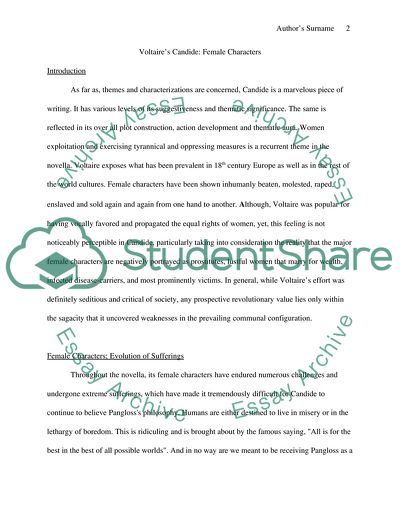Voltaires Candide: Female Characters Book Report/Review Example | Topics and Well Written Essays - 1500 words - 1. https://studentshare.org/literature/1752302-voltaires-candide
Voltaires Candide: Female Characters Book Report/Review Example | Topics and Well Written Essays - 1500 Words - 1. https://studentshare.org/literature/1752302-voltaires-candide.


